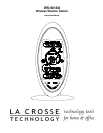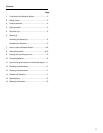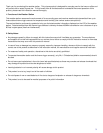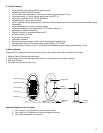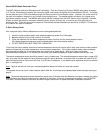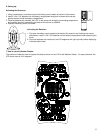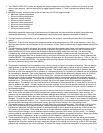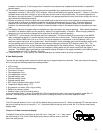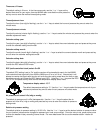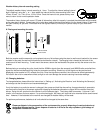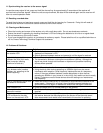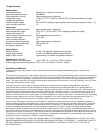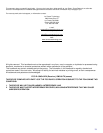
5
About WWVB (Radio Controlled Time)
The NIST (National Institute of Standards and Technology—Time and Frequency Division) WWVB radio station is located
in Ft. Collins, Colorado and transmits the exact time signal continuously throughout the United States at 60 kHz. The signal
can be received up to 2, 000 miles away through the internal antenna in the weather station. However, due to the nature of
the earth’s ionosphere, reception is very limited during daylight hours. The weather station will search for a signal every
night when reception is best. The WWVB radio station derives its signal from the NIST Atomic clock in Boulder, Colorado.
A team of atomic physicists is continually measuring every second, of every day, to an accuracy of ten billionths of a
second per day. These physicists have created an international standard measuring a second as 9,192,631,770 vibrations
of a Cesium-133 atom in a vacuum.
5. Quick Set-up Guide:
Hint: Use good quality Alkaline Batteries and avoid rechargeable batteries.
1. Have the indoor weather station and remote temperature sensor 3 to 5 feet apart.
2. Batteries should be out of both units for 10 minutes.
3. Place the batteries into the remote temperature sensor first then into the indoor weather station.
(All remote temperature sensors must be started before the indoor weather station)
4. DO NOT PRESS ANY BUTTONS FOR 10 MINUTES.
In this time the indoor weather station and remote temperature sensor will start to talk to each other and the indoor weather
station will show both the indoor temperature and an outdoor temperature. If the indoor weather station does not display
both temperatures after the 10 minutes please retry the set up as stated above. After both indoor and outdoor
temperatures are displayed for 10 minutes you can place your remote temperature sensor outdoors and set your time.
The remote temperature sensor should be placed in a dry, shaded area. The remote temperature sensor has a range of 80
feet. Any walls that the signal will have to pass through will reduce distance. An outdoor wall or window will have 20 to 30
feet of resistance and an interior wall will have 10 to 20 feet of resistance. Your distance plus resistance should not exceed
80 ft. in a straight line.
Note:
Fog and mist will not harm your remote temperature sensor but direct rain must be avoided.
To complete the set up of your indoor weather station after the 10 minutes have passed please follow the steps starting on
page 6.
Note:
The remote temperature sensor transmits a signal every 3 minutes; after the batteries have been installed, the indoor
weather station will search for the signal for a duration of 5 minutes. If there is no temperature reading in the OUTDOOR
LCD after 5 minutes, make sure the units are within range of each other or repeat the battery installation procedure.



